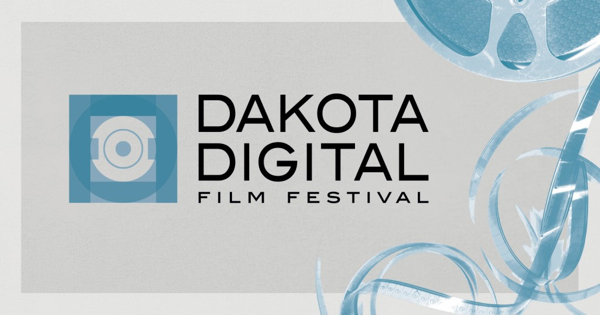Interview by Greg Carlson
The first Dakota Digital Film Festival will take place in Bismarck on March 30, 2012 at the Belle Mehus Auditorium. Submissions are being accepted until March 9, 2012.
For more information about entering work or attending the event, email ddff@freetv.org or visit the Dakota Digital Film Festival Facebook page.
The High Plains Reader’s Greg Carlson talked to festival co-organizer Jim Kambeitz.
Greg Carlson: Is this the first organized film festival event in Bismarck? Who are some of the people involved with getting DDFF off the ground?
Jim Kambietz: This is the first film festival in Bismarck that we know of. Mary Van Sickle (Executive Director at Dakota Media Access), Jackson Bird (Cinema 100 member) and I thought that it was time for Bismarck to have its own film festival. When we started asking others in the community, there was overwhelming support and within weeks we had a steering committee with representatives from production companies, local colleges, stage theaters, film clubs, and other areas.
GC: The call for entries appears to focus on student work. What is the mission of DDFF? Is the focus on education for people who want to use visual narrative to tell stories?
JK: The mission of this festival is to support and encourage filmmaking and audio/video production in all forms by providing a venue for professionals in the industry and students to meet and show their work. Although open to the general public, this first year is focused more heavily on students. We are keeping it open to see what kind of material is submitted. While our focus is on short films from the region, they can be any genre, documentary, fiction, animation, etc. It is an experiment this year and we expect it to evolve in future years.
GC: What are some of the key events planned for DDFF in its inaugural year?
JK: The structure for this first year will have two components: a daytime session (9am-3pm) geared toward students and an evening event (starting at 6:30pm) that is for everyone. The daytime event will be a series of screenings and workshops. The workshops will be led by local professionals and will provide engaging content in a fast-paced and visually interesting style. Each workshop will be separated by screenings of short films by regional students.
Students will have a chance to talk about their films and answer questions. The evening session will include several unique short films and a chance for the public to interact with the filmmakers. We are taking submissions of all genres of short films until March 9th, 2012. If you’d like to submit something, email a link to view your film online or any questions you might have to ddff@freetv.org.
GC: Did you visit other film festivals during the planning stages? What did you learn in the planning process?
JK: We attended the Fargo Film Festival as well as the South Dakota Film Festival and talked with their organizers and a representative from the Free Range Film Festival in Minnesota. We learned these regional festivals are very supportive of Bismarck starting its own festival. They helped field our questions about planning, technical preparations, and so many other things. It is reassuring to feel their support and know they want this festival to succeed.
GC: Describe the independent moviemaking scene in Bismarck. What kind of creative work is going on there both professionally and otherwise?
JK: We have many audio/video producers and filmmakers in the Bismarck area; however, few people in the community seem to know this or have access to their work. Likewise, we have this body of very talented film and audio/visual professionals who are somewhat isolated and not cross-pollinating ideas and imaginations like they could be if we had more venues to share their work.
The experiences here range from professional documentaries that have been commissioned for the Smithsonian Institute, people who have collaborated with Ken Burns and others on world-class documentaries about Native Americans and other topics, to an animator who has worked on Batman Returns and the Harry Potter movies.
We have also had a recent influx of North Dakotans who have returned to the state after being at film school in Montana, L.A. or Canada, and have started their own productions here. But the main factor here is that we have been missing a way to connect everyone – something this film festival and Dakota Media Access (the driving force behind the event) are hoping to change.
GC: What is your own background and experience in production?
JK: I got my Masters in English & film theory, and then studied cinematography at the Polish National Film School in Lodz, where I taught screenwriting and dramaturgy. I have shot several short fiction films and documentaries as well as two feature-length films about Ashtanga Yoga.
I am currently the Production Manager at Dakota Media Access where I get to direct, light, design and collaborate on a variety of productions, ranging from on-location multi-camera shoots and live cultural, musical, educational or entertainment events to PSAs, government meetings, and studio talk shows.
I love this occupation – so much that when I’m on vacation I’ll often squeeze in a production as well. I just returned from a leave of absence to study yoga in India where I also shot a documentary titled “Mysore Magic: The Source of Ashtanga Yoga.”
